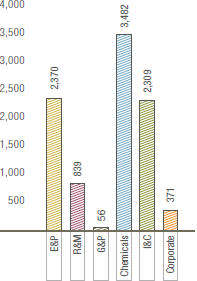In the 2011-2012 period eni commissioned technological research and support from approximately 100 institutions, 33% of which are in Italy.
eni’s commitment to the sustainable growth of the energy business is focused mainly on development of technological solutions that favour the use of renewable energy sources, in particular solar and biomass energy that do not involve competition with the food sector.
In the context of increasing global demand for energy, renewable sources represent both a green contribution that does not further exhaust traditional fossil fuel sources, and a useful additional energy source. Currently this sector is expanding, particularly in areas where there are active development incentives: in general the focus is on technologies that are self-sustaining from an economic, environmental and social point of view.
eni seeks to develop highly innovative, sustainable and competitive technology for the production of energy and energy carriers from renewable sources and bio-components for the chemical and upstream sectors. In the solar power field, eni has a medium-term goal to increase the efficiency and durability of the generation solar cells, such as organic cells and develop highly efficient photoluminiscent material that can be integrated into the architectural elements of buildings. In the long-term the company intends to make the energy produced from photovoltaic systems more competitive than that produced from fossil fuels, using entirely innovative technologies.
eni SpA’s patent portfolio (No. of patents)

In the field of biocomponents, in the medium term eni is focusing on the production of biofuels derived from urban and industrial waste and the conversion of cellulose biomass, with the aim of obtaining energy vectors that fully comply with the stringent sustainability criteria established by the European Union. In the long term, the company plans to make the process of producing bio-oils from biomass more competitive as an alternative to fossil fuels and to develop synthetic biotechnologies in order to produce new biofuels and intermediates for the chemicals sector.